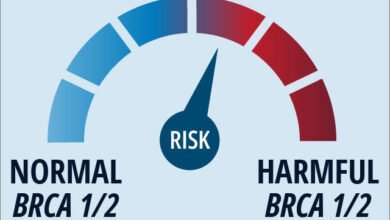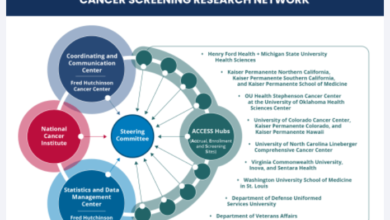Cancer Research UK – Science blog

Michelle Mitchell, chief executive of Cancer Research UK
Googling ‘cancer’ in the news nowadays often paints a depressing picture. Headlines persistently show missed waiting time targets, NHS staff dissatisfaction and lagging survival rates when compared to other countries, despite the UK being blessed with some of the best doctors, nurses, hospitals, research institutions and universities in the world.
It’s not just in the media. A recent report on the Rise and Decline of the NHS highlighted how years of under-funding, a lack of resources and poor workforce planning has left cancer services in England and the staff who support them completely stretched.
But cancer is a fixable problem. And there are plenty of bright spots on the horizon.
The launch of Labour’s Health Mission on Monday morning and the delivery of the Conservative’s Major Conditions Strategy for England in the coming months are tangible opportunities to make cancer a political priority in Westminster.
We’ll also be publishing a Manifesto for Cancer Research and Care later this year, with practical solutions for all political parties to use when mapping out their own strategies for cancer.
It is obvious that prevention must be a key focus in any plan for cancer.
Smoking is still the biggest cause of cancer in the UK, causing around 55,000 cancer deaths each year. We need cross-party support to end the burden of smoking on our society and to ensure future generations don’t live with the blight of tobacco.
The priority should be raising the age of sale and making the tobacco industry pay for services to help smokers quit, just like the government has done recently with gambling. The public are behind these measures. It’s time for politicians to catch up and end smoking forever.
We all know that diagnosing cancer early has an enormous impact on patient outcomes – it can be a case of life or death, when a matter of weeks is enough for some cancers to progress. We need the government to meet all cancer waiting times targets and to achieve the NHS ambitions to diagnose 75% of cancers early by 2028 in England. This is no mean feat, but it’s essential that political leaders aim high.
There has already been progress in diagnosing cancer in patients, by bringing Community Diagnostic Centres into local areas of England to diagnose patients more quickly and alleviate pressure on hospitals. Schemes like this need sustainable funding to work.
The benefits of technology could transform cancer treatment through further reform of the NHS. Artificial Intelligence, for example, could help diagnose patients more efficiently, freeing up capacity for doctors to focus on complex cancer cases and spend more time with patients.
Research and innovation need to be at the centre of any political party’s cancer plan. By protecting and dedicating time for research, the NHS could capitalise on the potential it already has within its workforce. In England, getting the Department for Health and Social Care, Integrated Care Boards, NHS trusts and industry together to streamline approval processes would help get innovations from the lab to the clinic more quickly.
Life sciences is a strength for the UK. The ongoing uncertainty around the UK’s participation in the EU’s Horizon Europe research programme is not only frustrating for scientists but impacts patients who aren’t benefiting from potentially life changing innovations and treatments. We are a world leader in cancer research and innovation, let’s not lose our position.
Lauren Mahon, a presenter of the brilliant You, Me and the Big C recently reminded me of the importance of remembering exactly why we do what we do, and that behind every cancer statistic is a human being with their own story.
We all know someone, like Lauren, who’s faced cancer. It affects every single one of us, including politicians on both sides of the despatch box. It transcends politics.
Regardless of who is in charge, with the right leadership, strategy, resources, and coalition of people working with the best evidence available, I fundamentally believe that we can see the NHS transformed, research environments thrive, and more lives saved.
Source link
#Cancer #Research #Science #blog



